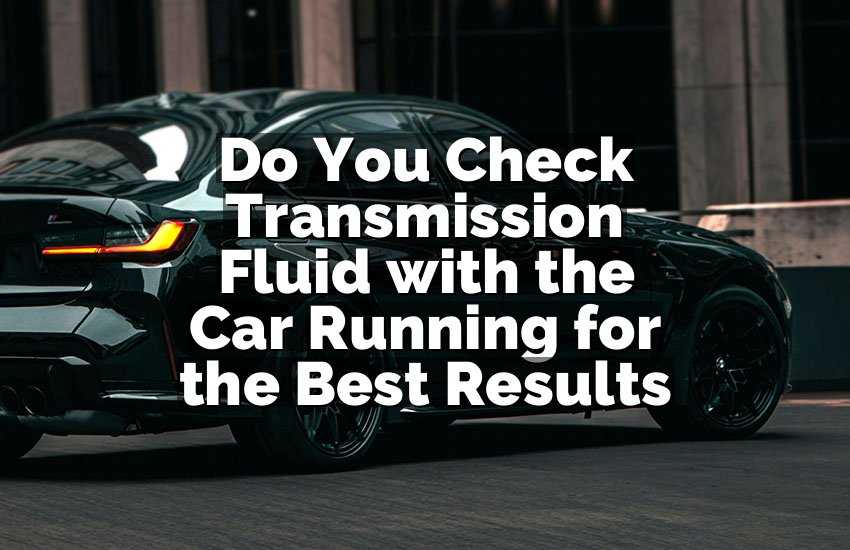Yes, disconnecting the car battery can reset the ECU. Typically, you should disconnect the car battery for about 30 minutes to reset the ECU.
However, the exact time may vary depending on the make and model of the vehicle. Resetting the ECU can help resolve certain issues related to the car’s performance and fuel efficiency. It is important to follow the manufacturer’s recommendations when resetting the ECU to ensure it is done properly.
We will explore the process of disconnecting the car battery to reset the ECU and discuss the potential benefits and precautions to consider. By the end, you will have a clear understanding of how to reset the ECU by disconnecting the car battery.
How Does A Car Battery Disconnect Affect The Ecu?
Disconnecting a car battery can potentially reset the ECU. However, the duration required for the battery to be disconnected may vary depending on the make and model of the vehicle.
The Role Of The Ecu In A Car
The ECU, or Engine Control Unit, is a crucial component of a car’s electronic system. It acts as the brain of the vehicle, regulating and controlling various aspects of its operation. The ECU uses information from different sensors to monitor variables such as engine temperature, air intake, fuel injection, and ignition timing. Based on this data, the ECU makes real-time adjustments to ensure optimal engine performance, fuel efficiency, and emissions control.
Effects Of Disconnecting The Battery On The Ecu
When you disconnect the car battery, it can have an impact on the ECU. The ECU relies on a steady power supply from the battery to function properly. Disconnecting the battery cuts off this power supply, resulting in a loss of power for the ECU. As a result, the ECU loses all the important information it has stored about the engine’s performance and settings.
When you reconnect the battery, the ECU will reset itself and return to its default factory settings. This means it erases any customized programming or adaptations it has learned over time. The ECU will then begin learning and adapting to the engine’s performance again, but it may take some time for it to relearn and optimize all the functions.
It is important to note that disconnecting the battery and resetting the ECU may also cause some temporary changes in the car’s behavior. For example, you may experience rough idling, reduced power, or changes in the transmission shift patterns until the ECU relearns and adjusts to the engine’s characteristics. However, these changes should generally resolve themselves as the ECU adapts.
How Long To Disconnect The Car Battery
The duration for which you should disconnect the car battery depends on the specific reasons for doing so. If you are simply trying to reset the ECU to clear any error codes or resolve performance issues, a short period of around 15 minutes is usually sufficient. This allows the system to fully discharge and reset.
However, if you are performing more intensive electrical work on the vehicle, such as replacing or repairing components, it is recommended to disconnect the battery for a longer period. In such cases, it is advisable to disconnect the battery for at least an hour or more to ensure all systems are fully discharged and reset.
Remember, it is always a good idea to consult the car’s manufacturer or a qualified mechanic for specific instructions regarding your car model, as different vehicles may have different requirements or recommendations regarding battery disconnection and ECU reset.
Does Disconnecting The Car Battery Reset The Ecu?
Disconnecting the car battery can reset the ECU, but the time required may vary. It is generally recommended to leave the battery disconnected for about 30 minutes to ensure a complete reset.
One popular question among car owners is whether disconnecting the car battery resets the ECU. The ECU, also known as the Engine Control Unit, is responsible for managing various engine functions and storing important data. In this article, we will explore the impact of disconnecting the car battery on the ECU’s memory.
Understanding The Ecu’s Memory
The ECU is essentially the brain of a car’s engine system. It collects data from various sensors and makes real-time decisions to optimize engine performance. Additionally, it also has a memory component that stores important information related to the operation of the vehicle.
This memory includes details such as fuel trim adjustments, idle control settings, and various other parameters specific to your car’s engine. It constantly learns and adapts based on your driving habits and conditions. However, this memory can also retain data that may cause performance issues or trigger error codes.
The Impact Of Disconnecting The Battery On Ecu Memory
When you disconnect the car battery, it interrupts the power supply to the ECU. As a result, the ECU loses its stored data and settings, and this can have both positive and negative effects.
On one hand, it can clear out any temporary errors or glitches that may have been affecting the engine performance. This can potentially resolve minor issues like a rough idle or a sluggish acceleration. It’s like giving your ECU a fresh start and allowing it to recalibrate itself.
However, on the other hand, disconnecting the battery can also erase valuable data that the ECU has learned over time. This means that your car may require some time to relearn its optimal settings, resulting in a period of slightly reduced performance. This is especially noticeable if you drive a high-performance or precision-tuned vehicle.
It’s important to note that the duration of the battery disconnect also plays a role in the impact on ECU memory. Ideally, you should disconnect the battery and wait for at least 10 to 15 minutes to ensure complete discharge of power from the ECU. After reconnecting the battery, you may need to drive the car for a while to allow the ECU to relearn and optimize its settings.
In conclusion, while disconnecting the car battery can reset the ECU and potentially resolve certain issues, it can also lead to a temporary decrease in performance. Therefore, it’s important to weigh the pros and cons before deciding to reset the ECU by disconnecting the battery. If you’re unsure, it’s always recommended to consult with a professional mechanic or refer to your car’s specific documentation.
How Long Should You Disconnect The Car Battery?
How long should you disconnect the car battery? When it comes to resetting the ECU by disconnecting the car battery, the duration is a crucial factor. It’s important to understand the ideal length of time needed to effectively reset the ECU without causing any negative impacts on the vehicle’s electronic systems.
Factors To Consider
- Vehicle make and model
- ECU complexity
- Driving conditions
Recommended duration:
Recommended Duration
It’s essential to consider the specific factors influencing the car’s electronic control unit (ECU) before determining the recommended duration for disconnecting the car battery. Typically, experts suggest a duration of around 15 to 30 minutes to ensure a complete reset of the ECU system.

Credit: www.amazon.com
Potential Benefits Of Disconnecting The Car Battery
When it comes to maintaining a car’s functionality, knowing the potential benefits of disconnecting the car battery can be valuable information. Whether it’s for resetting the ECU adaptations or clearing fault codes, understanding how this simple process can benefit your vehicle can make a significant difference in its performance.
Resetting Ecu Adaptations
Resetting the ECU (Engine Control Unit) adaptations is one of the potential benefits of disconnecting the car battery. The ECU continuously adjusts and adapts to the driving style and conditions, which can lead to a slight decrease in performance over time. By disconnecting the battery, the ECU is reset, allowing it to relearn and readjust to the current driving habits, ultimately optimizing the vehicle’s performance.
Clearing Fault Codes
Another potential benefit of disconnecting the car battery is the clearing of fault codes. When the battery is disconnected, the computer systems in the car reset, and any existing fault codes are cleared. This can be beneficial for troubleshooting issues, ensuring that any previous errors are no longer present and allowing for a fresh start in monitoring the vehicle’s performance and operation.
Precautions To Take When Disconnecting A Car Battery
Disconnecting a car battery can sometimes be necessary for maintenance or repair purposes. However, it is important to take certain precautions to ensure both your safety and the proper functioning of your vehicle. In this article, we will discuss the precautions to take when disconnecting a car battery, including how to disconnect the battery safely and the effects it may have on other electrical components.
Disconnecting The Battery Safely
Disconnecting a car battery safely is crucial to avoid any potential hazards. Follow these steps to disconnect the battery:
- Locate the battery in your car. It is typically found in the engine compartment.
- Before disconnecting the battery, ensure that the ignition is turned off.
- Start by disconnecting the negative (-) terminal. Use a wrench to loosen the nut holding the battery cable in place.
- Once the nut is loose, carefully remove the cable from the terminal. Pay attention to any signs of corrosion or damage.
- After disconnecting the negative terminal, move on to the positive (+) terminal. Follow the same steps to loosen the nut and remove the cable.
- Once both terminals are disconnected, carefully lift the battery out of the battery tray.
Effects On Other Electrical Components
Disconnecting the car battery can have certain effects on other electrical components of the vehicle. It is important to be aware of these effects to prevent any potential issues:
- Loss of settings: Disconnecting the battery may result in the loss of certain settings, such as radio presets or clock settings. Make a note of any important settings before disconnecting the battery to easily reconfigure them later.
- Factory defaults: In some cases, disconnecting the battery may cause the Engine Control Unit (ECU) to reset to its factory defaults. This can temporarily affect the performance and fuel efficiency of your vehicle as the ECU will have to relearn the optimal settings for your specific driving conditions.
- Temporary fault codes: After disconnecting and reconnecting the battery, your vehicle’s onboard computer may trigger temporary fault codes. These codes should clear on their own after a few driving cycles. If they persist, it may indicate a more serious issue that requires professional attention.
- Anti-theft systems: Some vehicles have anti-theft systems that require a security code to be entered after disconnecting and reconnecting the battery. Ensure you have the necessary codes or information to deactivate these systems before proceeding.
By considering these effects and following the necessary precautions, you can safely disconnect your car battery without causing any major issues. Remember to always consult your vehicle’s manual for specific instructions and seek professional help if needed.

Credit: m.youtube.com

Credit: www.reddit.com
Conclusion
Disconnecting the car battery can indeed reset the Engine Control Unit (ECU), but the duration of the disconnection is important. Disconnecting the battery for a period of 30 minutes or more is generally recommended to ensure a complete reset. This process can help resolve issues with your ECU and provide a fresh start.
However, it is crucial to consult with a professional to avoid any potential damage. Keep your car running smoothly by taking this step cautiously.


